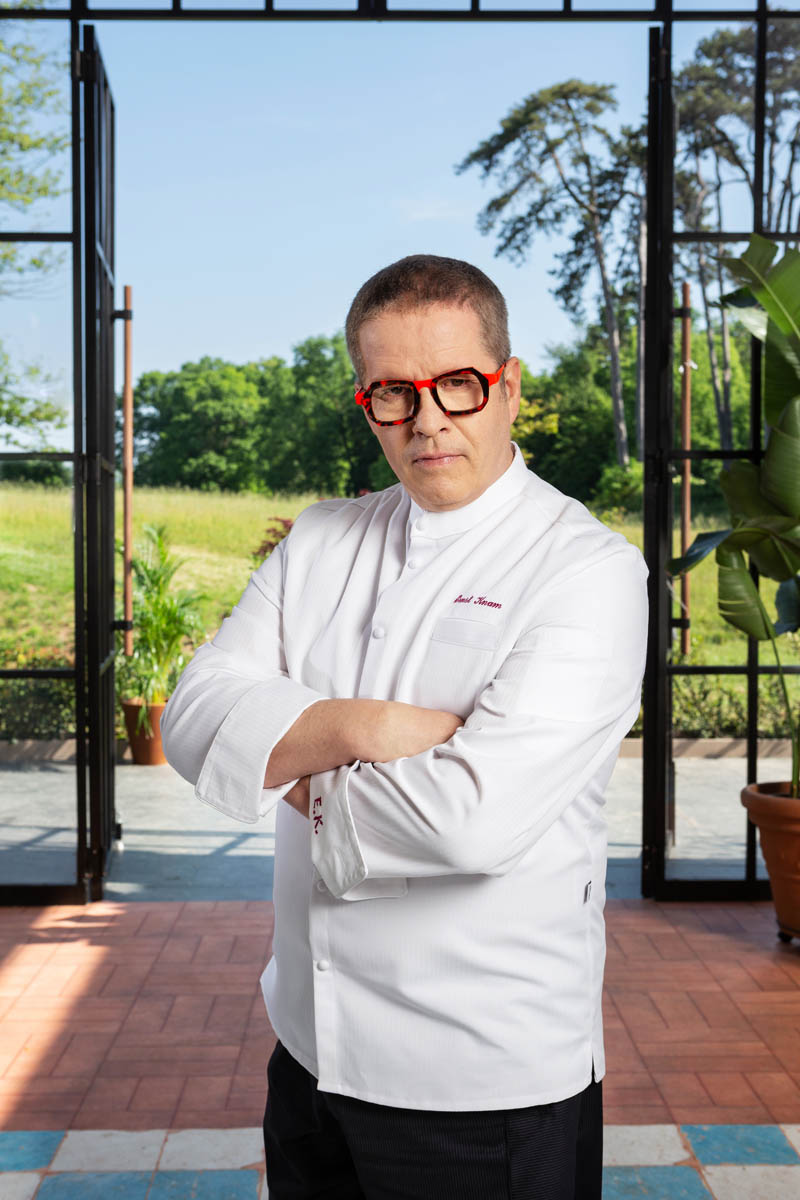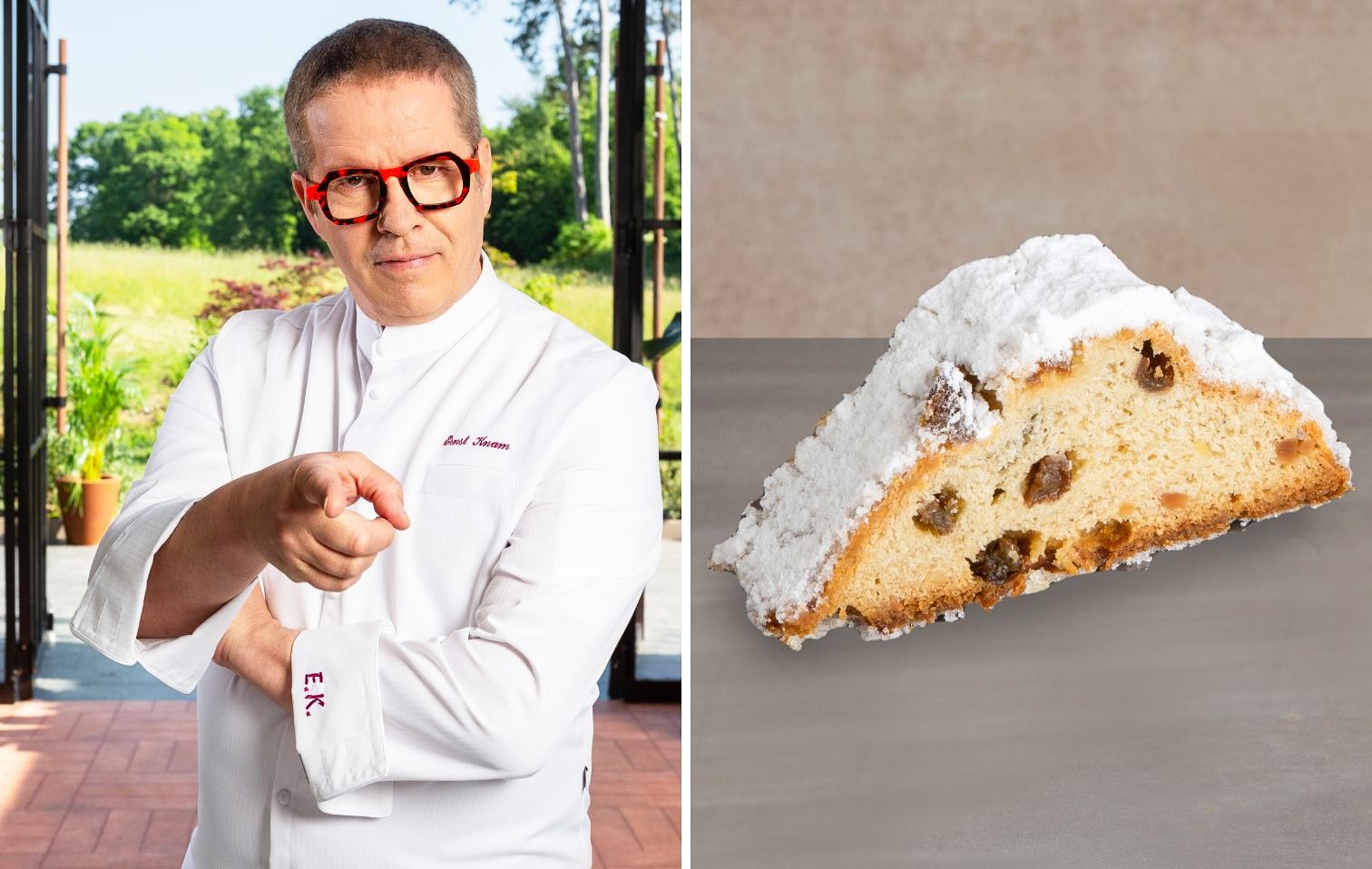In the international debate between panettone enthusiasts and Christmas pudding fans, a third contender emerges: Christstollen, a typical German Christmas cake. Here's Ernst Knam's recipe, featured alongside his impeccable panettone in his Milanese pastry shop.
The story
The sweet is very old, dating back to medieval times, reportedly emerging from a competition among pastry chefs initiated by the bishop of Naumburg in 1329. It is mentioned in a bill from the hospital of St. Bartholomew in Dresden in 1474 but without butter, as a lean dessert. A dispensation for Dresden pastry chefs from Pope Nicholas V was requested by Ernest of Saxony, granted only in 1490 by Innocent VIII in what became known as the 'Butter Letter.' The dip in fat, before sugar, explains the crust that envelops it, resembling a warm cloth on the body of the Baby Jesus.

To the city of Dresden, the yeast cake rich in candied fruits, now protected by a trademark, would have remained forever linked. Although Friedrich Nietzsche expressed some doubt: 'The Genoese now consume in large quantities their Christmas sweet, their sweet bread from Genoa, and they ship it worldwide. It is identical to our Stollen, or rather: our Stollen is the German imitation of Genoa's sweet bread. A dessert with almonds, raisins, and candied fruits can hardly be a purely German invention.' This serves as evidence against the nationalistic disputes that have always erupted on this matter.
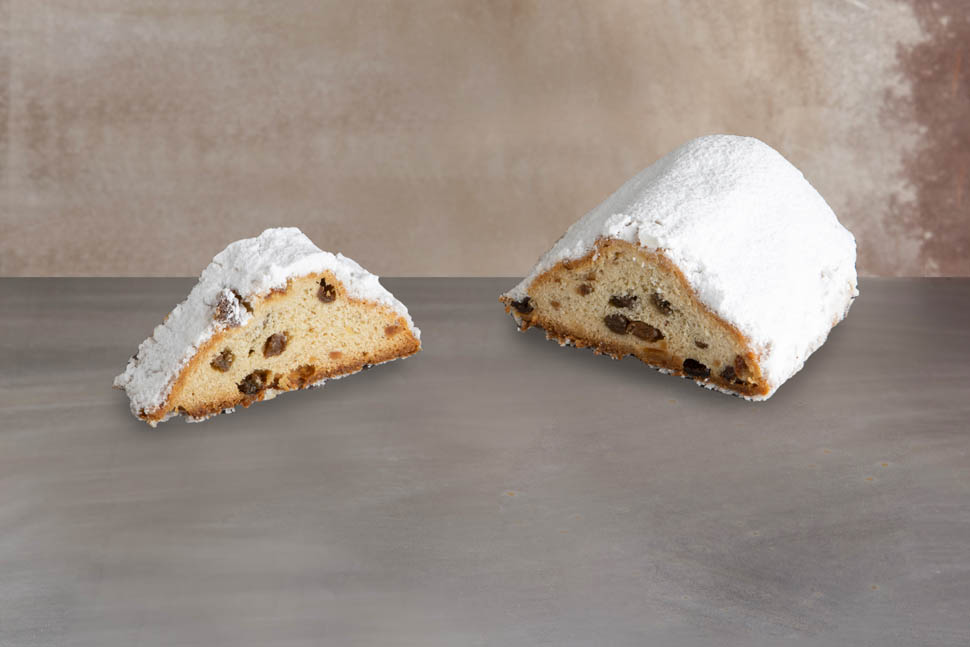
The sweet
"It's our classic German sweet, also enjoyed in Switzerland and Austria," says Ernst Knam, a renowned pastry chef born in Tettnang, based in Milan. "It's a dense yeast cake rich in butter, with many spices and marzipan inside. After baking, it's rolled in boiling butter, then in sugar, creating a crispy crust, and the spices start working. Like panettone, it needs to rest; a couple of weeks before consumption. It's not soft but very satisfying."

"Being half Venetian, we only ate panettone at home. As a child, there was only Christstollen; they didn't even know what panettone was. But now the craze has reached Germany too, and after COVID, many chefs started selling it. So, I send panettone to my relatives, except for one brother who prefers pandoro. At Via Anfossi, I've been making Christstollen since the opening year, 1992, in half and one-kilogram sizes at 40 euros, while Frau Knam offers individual portions of 100 and 150 grams.
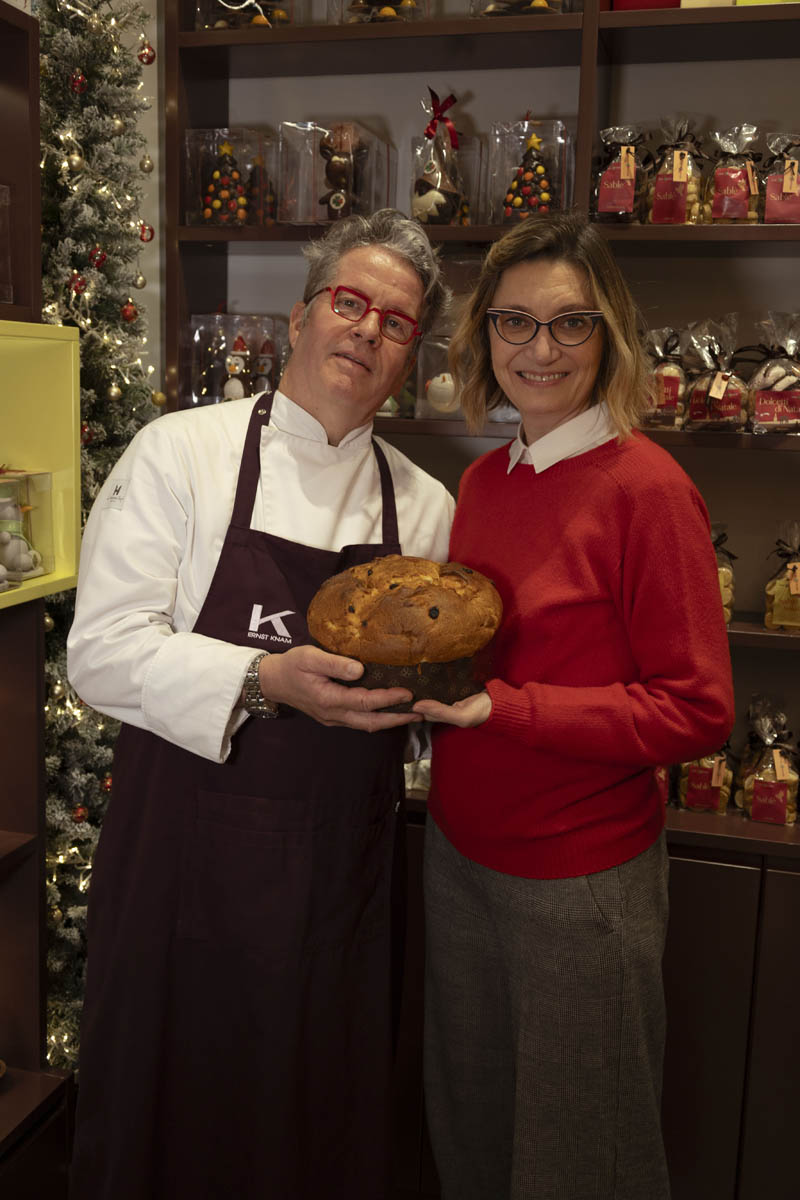
Milanese love it; there are loyal customers who reserve it every year. Paired with it, you might think of a dessert wine, but I prefer a glass of Amarone with many sweets, with its cocoa and licorice aftertaste. Then I feel like I'm in the mountains, in front of a roaring fireplace, with snow falling outside. It doesn't get better than this..."
Ernst Knam Christstollen's Recipe
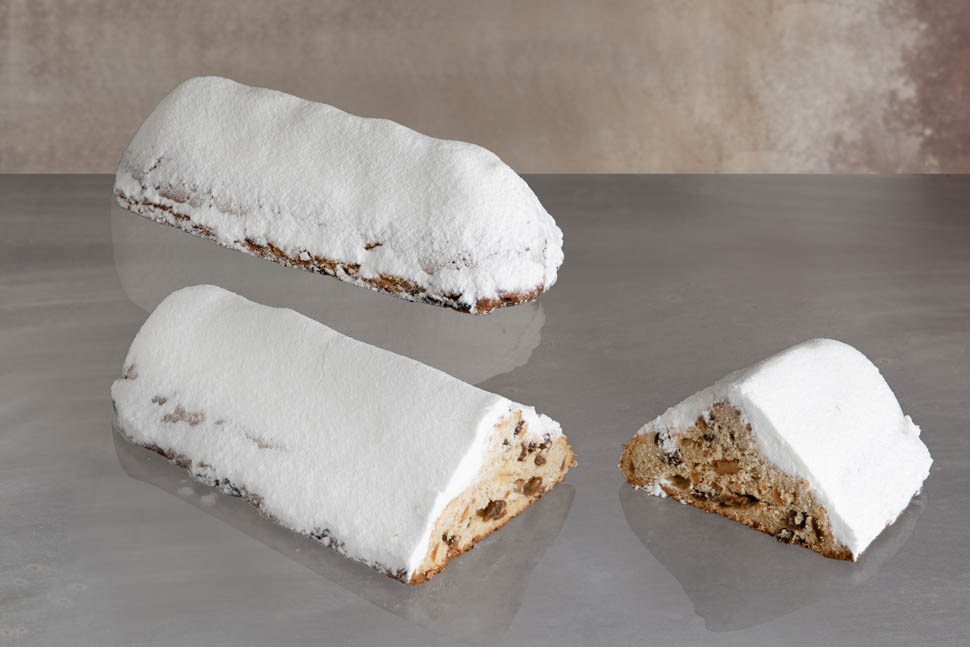
For the yeast
- 300 g strong flour
- 65 g brewer's yeast
- 200 ml milk
Mix strong flour, brewer's yeast, and milk to create gluten mesh. Let it rise until doubled in volume.
For the dough
- Zest of 1 lemon
- 4 tablespoons of spice mix
- Vanilla
- 5 g honey
- 6 g mixed spices for Stollen (cardamom, vanilla, star anise)
- 100 g all-purpose flour
- 50 g granulated sugar
- 50 g salt
- 30 g butter
- 35 g marzipan
- 25 g vegetable oil
After the yeast volume doubles, add other ingredients, creating the gluten mesh again.
For the finishing touch
- 600 g raisins soaked in 12 g rum
- 300 g candied orange
- 85 g toasted stick almonds
Once the gluten mesh is formed, add almonds, rum-soaked raisins, and candied orange. Knead until a well-blended mixture is obtained.
Cut pieces of dough to form Christstollen in the mold. Let it rise for 3 hours and bake at 180°C for about 40 minutes.
As soon as the core reaches 93°C, remove, dip in melted butter, drain, and sprinkle the entire cake with granulated sugar. Finally, dust with powdered sugar.
To purchase Ernst Knam's Christstollen, visit the online shop
